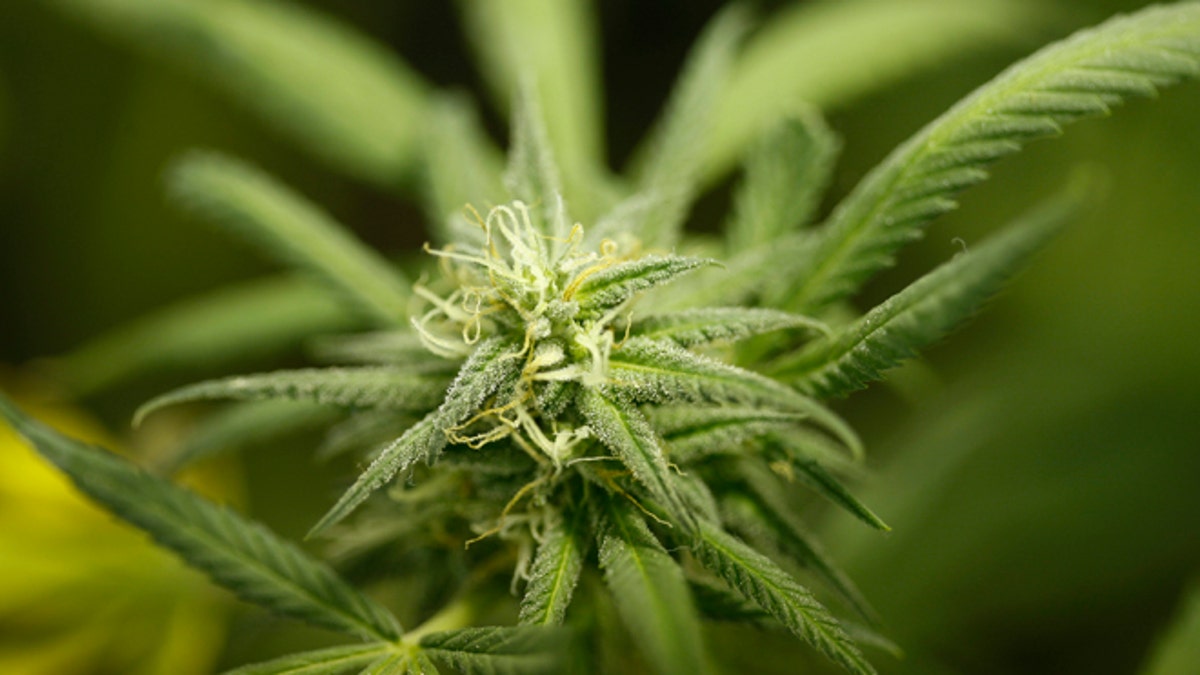Marijuana Growth in US National Forests is Big Business for Mexican Traffickers
{{#rendered}} {{/rendered}}
LOS ANGELES, CA - SEPTEMBER 7: Marijuana plants grow at Perennial Holistic Wellness Center, a not-for-profit medical marijuana dispensary in operation since 2006, on September 7, 2012 in Los Angeles, California. A group of activists have submitted about 50,000 signatures in an effort to force a referendum on a marijuana dispensary ban in Los Angeles to take effect next week. A minimum of 27,425 valid signatures from registered voters is needed to let voters decide on the issue in March, and until the number can be verified, the ban will not be enforced. . The ban would not prevent patients or cooperatives of two or three people to grow their own in small amounts. Californians voted to legalize medical cannabis use in 1996, clashing with federal drug laws. (Photo by David McNew/Getty Images) (2012 Getty Images)
This isn't what Smokey the Bear had in mind.
Mexican drug traffickers are stepping up marijuana growing operations in America's national forests, according to a report by the USA Today.
Drug trafficking in U.S. national forests isn't a new thing. It was first detected in 1995, but traffickers are "finding that it's easier and easier...to grow within this country," Wisconsin Attorney General J.B. Van Hollen told the newspaper.
{{#rendered}} {{/rendered}}From 2005 to 2010, undocumented immigrants tended 1,607 cultivation sites in national forests, David Ferrell, the Forest Service's law enforcement and investigations director told a congressional panel last year. In August, Operation Mountain Sweep eradicated more than 578,000 plants worth more than $1 billion in seven Western states, including California.
The problem isn't just a western state epidemic. A raid in Wisconsin seized more than 8,000 marijuana plants in Chequamegon-Nicolet National Forest. In a Michigan forest, 3,000 plants were seized in 2011.
Traffickers enter the federal lands, grow their plants, cut down trees, and put other Americans at risk. Experts say the strategy makes sense for traffickers looking to move the product closer to its American clients.
{{#rendered}} {{/rendered}}Some other experts say that drug legalization for recreational purposes in Colorado and Washington, which was approved on November 6, doesn't help the situation and only serves to place law enforcement in a gray area between state and federal law.
The continued trend of Mexican undocumented immigrants growing pot in National Forests, in combination with drug legalization legislation in the U.S., has garnered the attention of the Mexican government.
Mexican President Felipe Calderón said in November the legalization of marijuana for recreational use in two U.S. states limits the country’s ‘‘moral authority’’ to ask other nations to combat or restrict illegal drug trafficking.
{{#rendered}} {{/rendered}}Calderón said the recent legalization of marijuana in Washington and Colorado represents a fundamental change that requires the rethinking of public policy in the entire Western Hemisphere.
Obama has said the US has continued a collaborative relationship with Mexico in the fight against the spread of violence from drug cartels in Mexico and Central America.
Mexico insists the violence from cartels has increased largely because of drug consumption and arms smuggled from the United States.
{{#rendered}} {{/rendered}}Follow us on twitter.com/foxnewslatino
Like us at facebook.com/foxnewslatino
